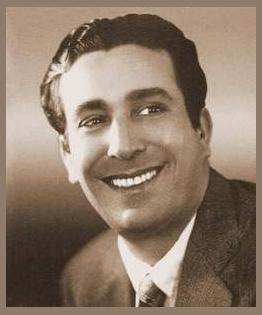 Vicente Celestino
Vicente Celestino
Vicente Celestino: The Voice of Romantic Agony
Vicente Celestino, known as the "Poet of Song," emerged as a legendary figure in Brazilian music during the golden age of radio. His soul-stirring performances of "O Ébrio" (The Drunkard) captivated audiences with their raw emotional intensity.
Early Life and Challenges
Born in 1894 in Rio de Janeiro, Celestino's early life was marked by poverty and adversity. He lost his father at a young age and was raised in a humble neighborhood. Despite his challenges, his passion for music burned brightly.
Breakthrough and Controversies
Celestino's breakthrough came in 1929 with his rendition of "O Ébrio," a tango lamenting the despair of an alcoholic. The song's poignant lyrics and Celestino's heart-wrenching delivery resonated deeply with listeners, propelling him to stardom.
However, his success also brought controversy. Some critics accused him of glorifying drunkenness, while others questioned the authenticity of his performances. Undeterred, Celestino continued to pour his soul into his music, blurring the lines between art and reality.
Discography
Celestino's prolific career spanned decades, and he recorded an extensive discography that included:
* "O Ébrio" (1929)
* "Carinhoso" (1930)
* "Fado Português" (1931)
* "Serenata do Adeus" (1933)
* "Camisola do Dia" (1934)
Members
Celestino's band, known as the Orquestra Celestino, featured a rotating cast of musicians over the years. Notable members included:
* Pixinguinha, renowned saxophonist and composer
* Donga, author of the first samba hit
* Jacob do Bandolim, virtuoso mandolin player
Legacy
Vicente Celestino's legacy as a master of romantic music endures. His songs, particularly "O Ébrio," continue to evoke powerful emotions in listeners from all walks of life. His ability to express the depths of human suffering and longing through his voice has cemented his place in the pantheon of Brazilian music icons.
Vicente Celestino, known as the "Poet of Song," emerged as a legendary figure in Brazilian music during the golden age of radio. His soul-stirring performances of "O Ébrio" (The Drunkard) captivated audiences with their raw emotional intensity.
Early Life and Challenges
Born in 1894 in Rio de Janeiro, Celestino's early life was marked by poverty and adversity. He lost his father at a young age and was raised in a humble neighborhood. Despite his challenges, his passion for music burned brightly.
Breakthrough and Controversies
Celestino's breakthrough came in 1929 with his rendition of "O Ébrio," a tango lamenting the despair of an alcoholic. The song's poignant lyrics and Celestino's heart-wrenching delivery resonated deeply with listeners, propelling him to stardom.
However, his success also brought controversy. Some critics accused him of glorifying drunkenness, while others questioned the authenticity of his performances. Undeterred, Celestino continued to pour his soul into his music, blurring the lines between art and reality.
Discography
Celestino's prolific career spanned decades, and he recorded an extensive discography that included:
* "O Ébrio" (1929)
* "Carinhoso" (1930)
* "Fado Português" (1931)
* "Serenata do Adeus" (1933)
* "Camisola do Dia" (1934)
Members
Celestino's band, known as the Orquestra Celestino, featured a rotating cast of musicians over the years. Notable members included:
* Pixinguinha, renowned saxophonist and composer
* Donga, author of the first samba hit
* Jacob do Bandolim, virtuoso mandolin player
Legacy
Vicente Celestino's legacy as a master of romantic music endures. His songs, particularly "O Ébrio," continue to evoke powerful emotions in listeners from all walks of life. His ability to express the depths of human suffering and longing through his voice has cemented his place in the pantheon of Brazilian music icons.